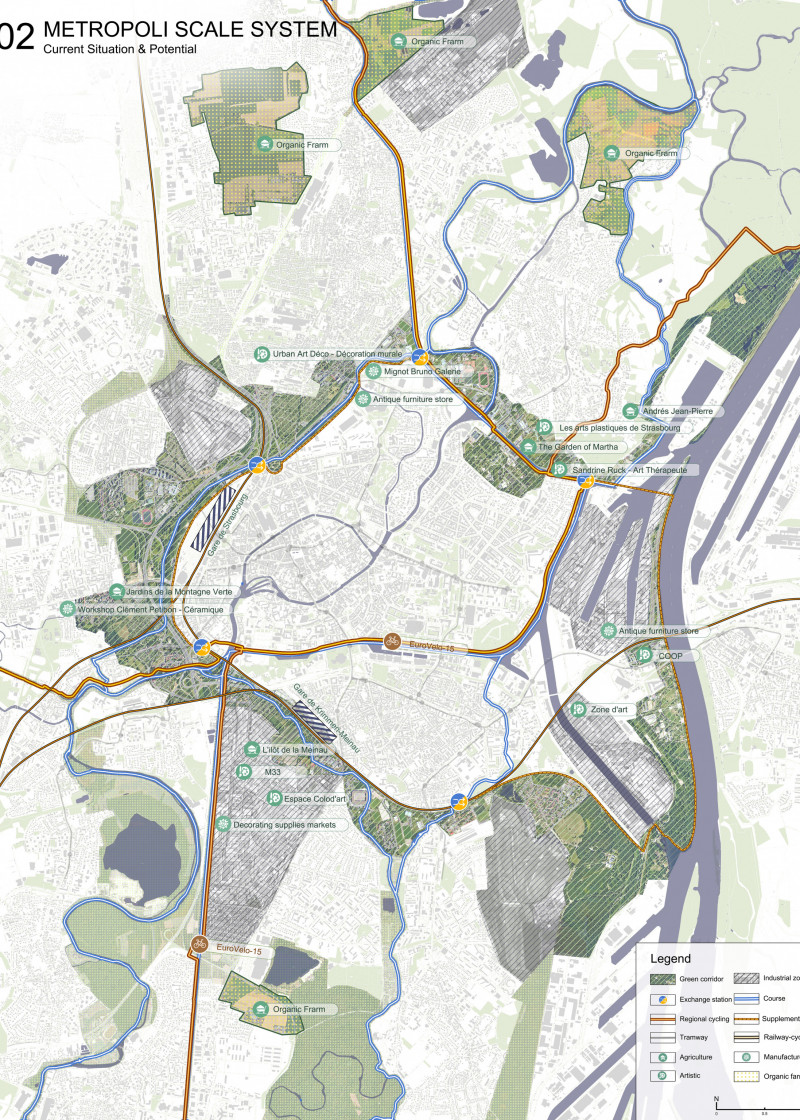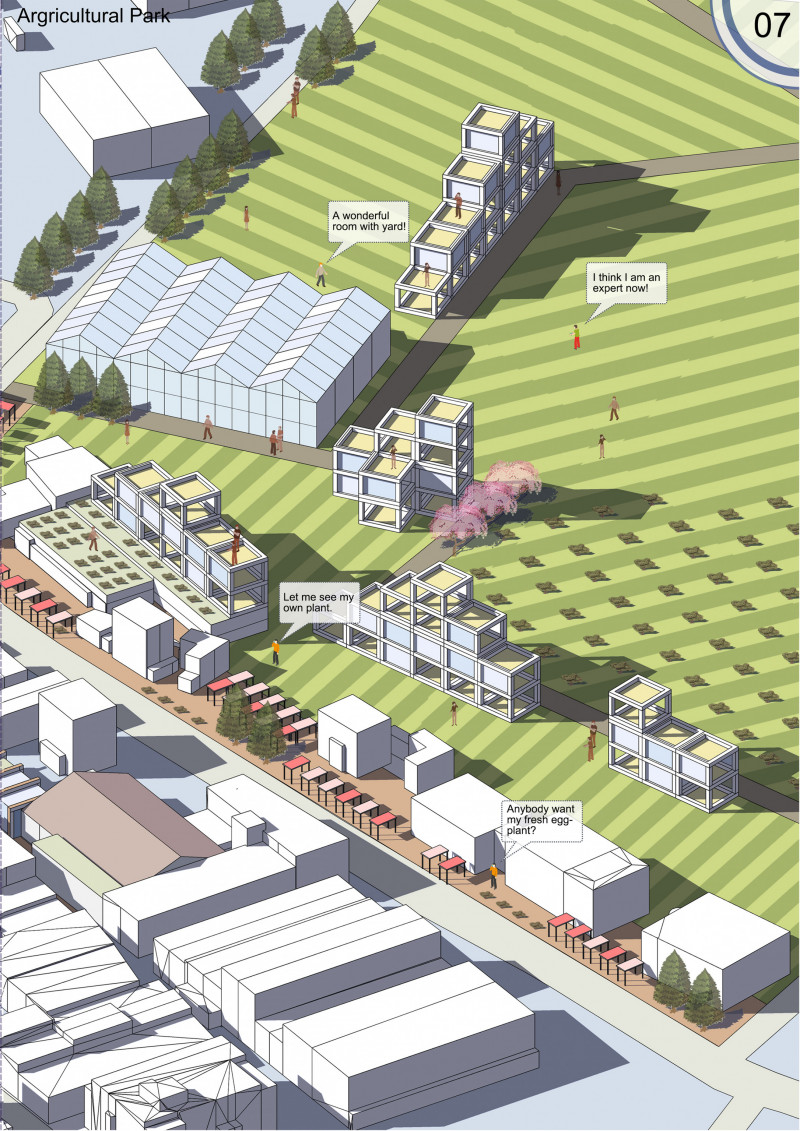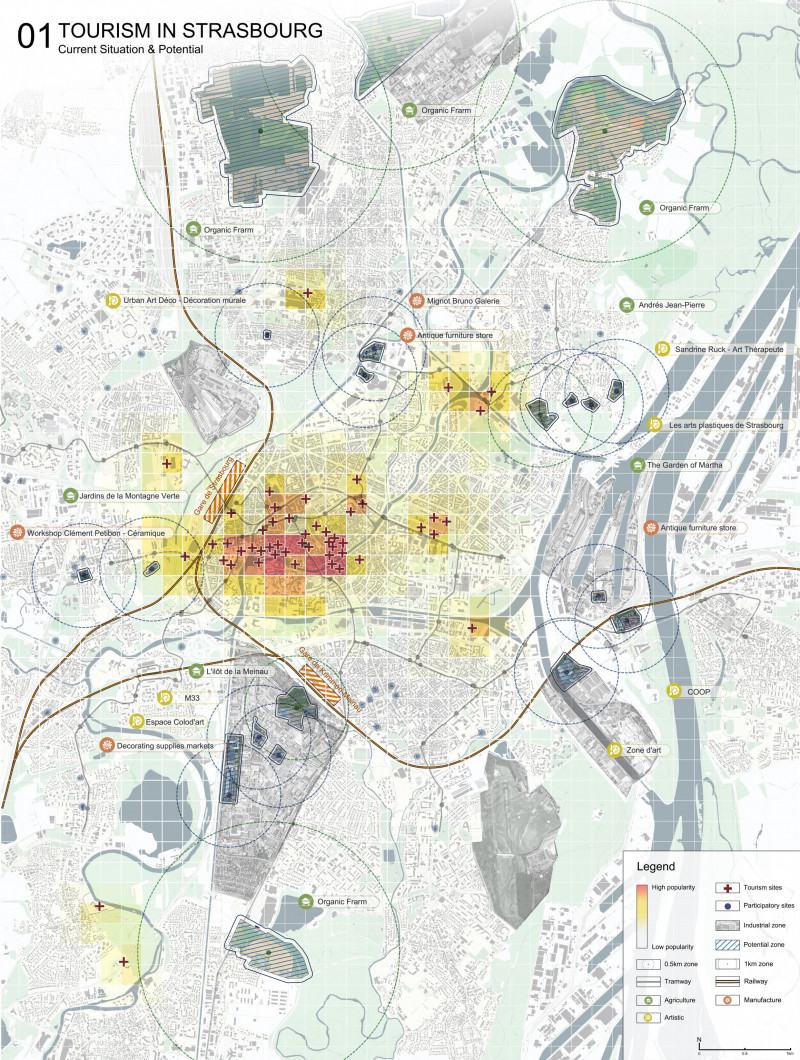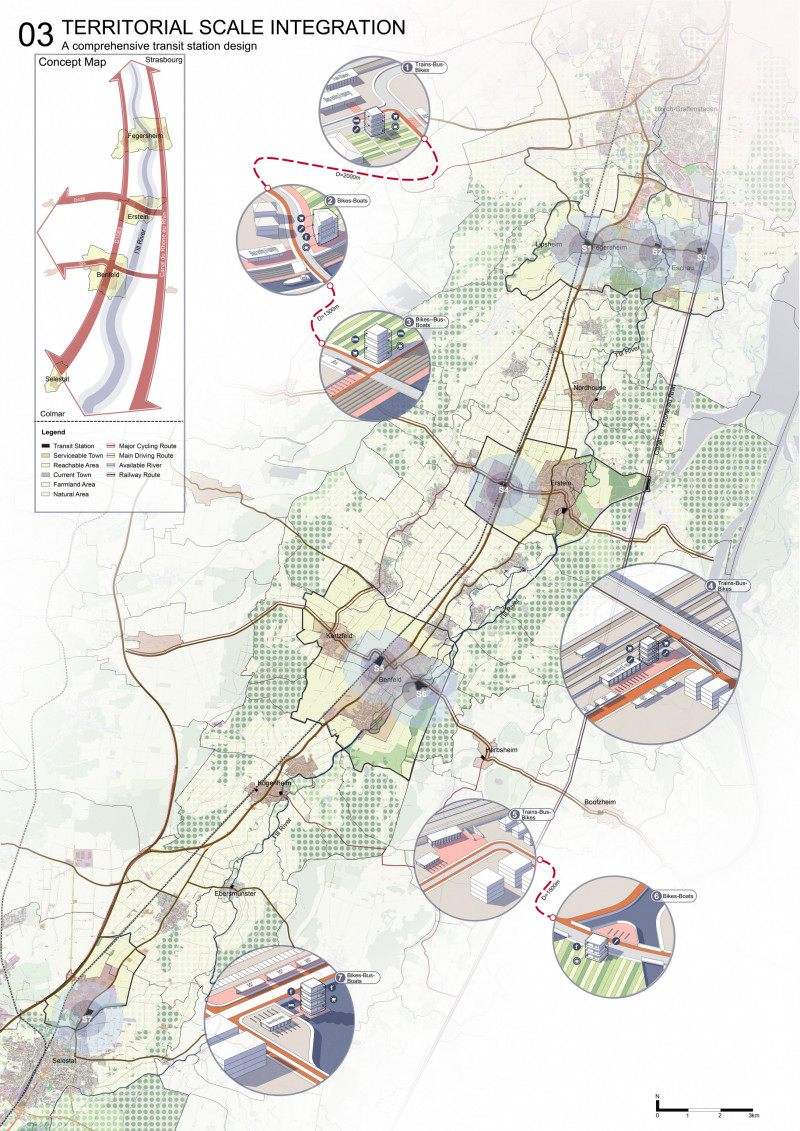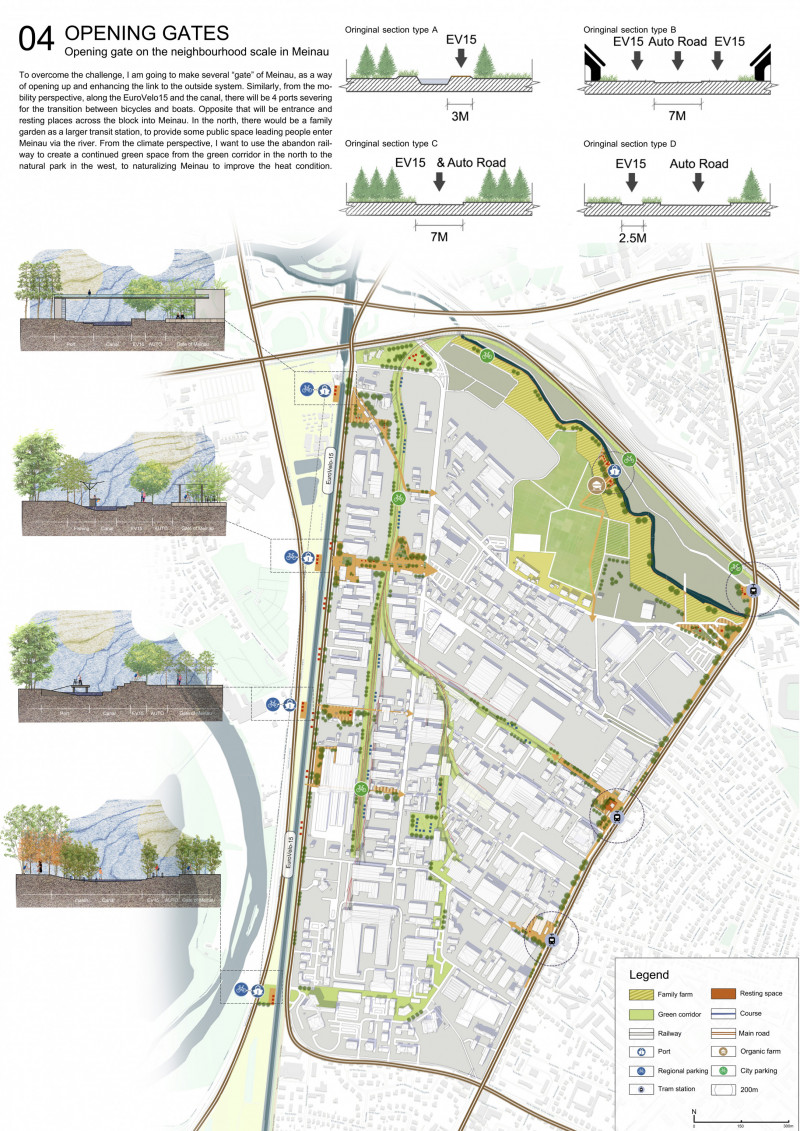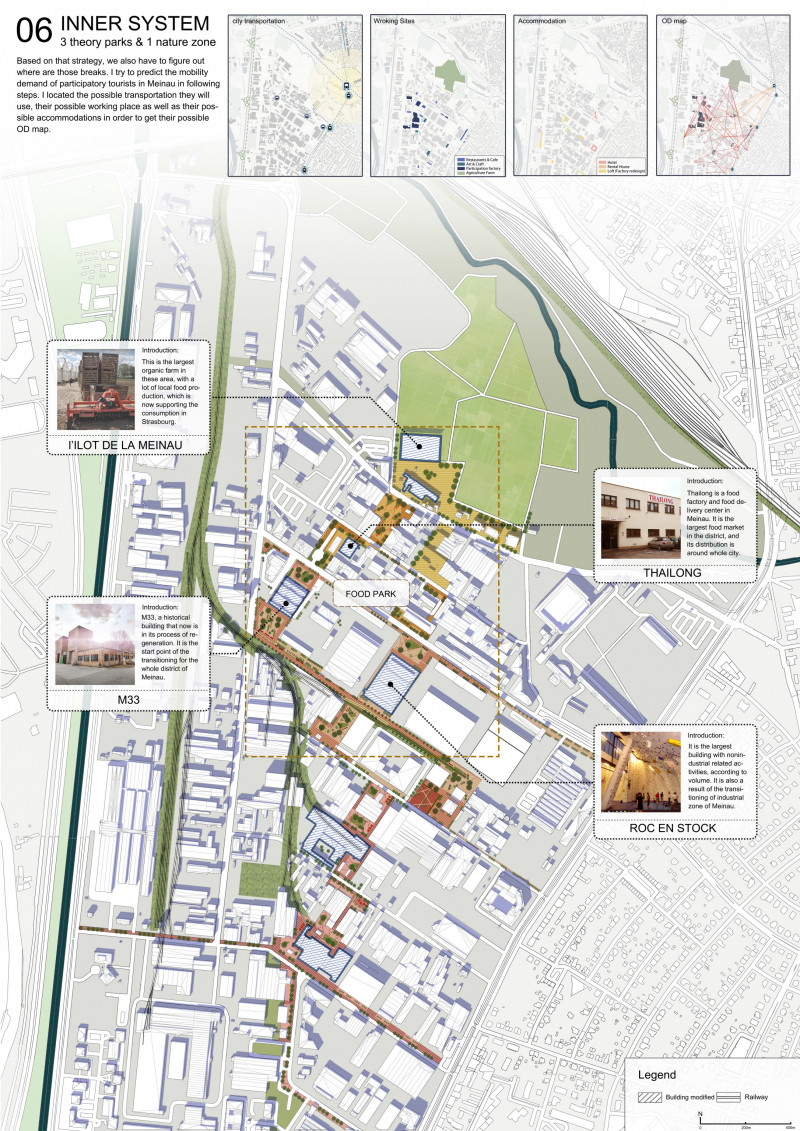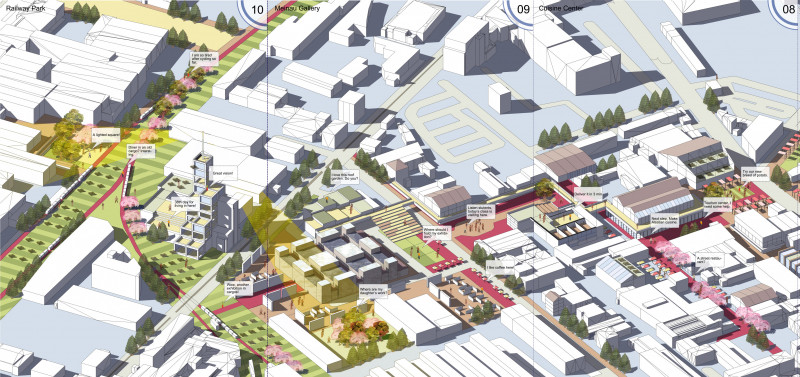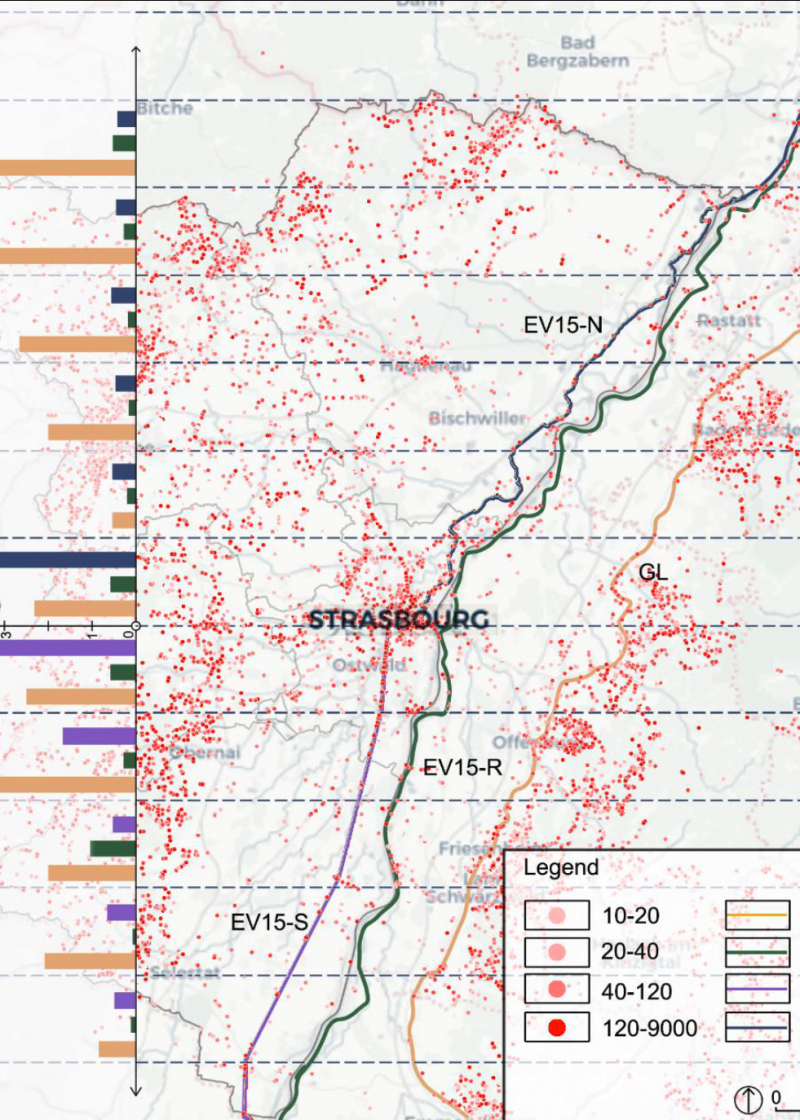The Eco-Tourism Productive Belt
Traditional tourism carries negative side effects, but alternative forms of tourism could be beneficial for the cities and territories that host them, and could be harnessed as a means to support a sustainable and eco-friendly local economy. The question is how neighborhoods outside the already highly-developed touristic centers could be transformed through sustainable eco-tourism strategies embedded in productive local activities.
This project focuses on the Strasbourg metropolis and envisions a participatory, productive and ecological tourism area within the neighborhoods adjacent to the greater city center. The design considers Strasbourg's existing green belt as a means to connect this territory through slow mobility paths.
On a smaller scale, the project takes as an example the neighborhood of Meinau, a former industrial zone to be transformed into a participatory eco-tourism incubator, as part of a larger urban renewal strategy. Existing productive activities, from manufacturing to urban agriculture, will host and benefit from tourists seeking an engaged and responsible visiting experience. Appropriate facilities for hosting, entertainment, and meaningful social exchange with local inhabitants, will be the subject of an eco-friendly design.
The broader effect of this dynamic will allow the development of a sustainable and local-scale economy through a connected network of small factories, urban organic farms, and eco-responsible small commerce, among others. To support this transformation, the project proposes an ecological mobility network to organize the potential participatory activities into a sustainably-functioning system. The former industrial urban fabric of Meinau will thus adapt to host these new activities, providing qualitative public spaces, by demineralizing areas formerly dedicated to cars, breaking through multiple spatial barriers, opening the neighborhood to its environs and creating pedestrian porosity and green mobility connections.
In a word, the project is building the means towards eco-friendly urban transition, where tourists become a positive force for development, creating a better living environment for both visitors and citizens.




